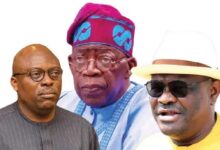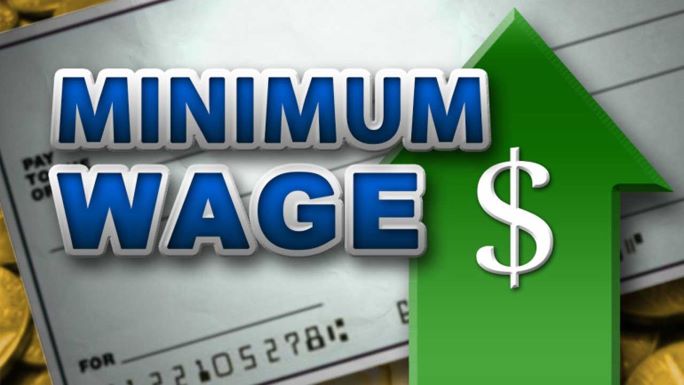BRANDING: THE FUTURE OF NIGERIAN POLITICAL BRANDS
 It is interesting to see how Nigerian politicians generally pay scant attention to how they are perceived by the electorate and fellow citizens. This is a natural fall-out from the military-era culture where the progression in career, office, government plum jobs, contracts and even import licences were attained by having a Godfather in the right places. This eventually played out eloquently in the 1999 elections. Candidates who lost primaries were imposed on parties because they had a godfather in the party who eventually also rigged them into office and sat back to enjoy the dividends of his ‘investments’.
It is interesting to see how Nigerian politicians generally pay scant attention to how they are perceived by the electorate and fellow citizens. This is a natural fall-out from the military-era culture where the progression in career, office, government plum jobs, contracts and even import licences were attained by having a Godfather in the right places. This eventually played out eloquently in the 1999 elections. Candidates who lost primaries were imposed on parties because they had a godfather in the party who eventually also rigged them into office and sat back to enjoy the dividends of his ‘investments’. In the same vein, political parties tend to act as if brand development of a party ended with getting a name, a logo and emblazoning them on caps, T-shirts and wax materials. They then top it up with tactical saturation-burst advertisements during campaign periods. The case is further compounded when the candidates the parties have imposed become serial under-performers. This was the case when the voter did not quite count but that is about to change as Nigeria prepares to celebrate 14 unbroken years of democracy in May this year. It is a worthy record looking back at our history and whether we like to admit it or not our democracy is taking root even if it is still fragile.
With better organized elections and improved integrity of the process, more Nigerians will be willing to not just vote but be ready to protect his and her vote. This is already happening. There is therefore an urgent need for the Nigerian politician and political parties to begin to invest in optimizing their brand values. The present model of constantly hurling accusations and counter accusations, insults and counter insults against one another is not the best way to develop political brands. I have noted sadly that the tone, language and even comportment of most of the spokesmen of the major political parties and politicians is not distinguishable from one party or politician to the other. They all sound and look the same. They could be talking for any party; all you just need to do is replace one for the other and that is it. In the end they vent so much hot air and vitriol that they over-heat the polity…to their advantage.
But a recent survey in the world’s oldest democracy, the United States of America shows that the two major political parties have distinct brand identities which were clearly understood by the majority of American voters. According to Brad VanAuken of The Blake Project which conducted the survey, it was discovered that first, perceptions of the Democratic and Republican parties were quite different from one another, in many ways almost opposite. And, regardless of background, most people had fairly similar perceptions of the two parties. The primary perceptions of the Democratic Party are diverse, compassionate, giving, determined and kind. The primary perceptions of the Republican Party are business friendly, determined, driven, entrepreneurial and decisive. The biggest differences between the two parties were on these attributes: business friendly (Republican) and diverse, compassionate and giving (Democratic). At an overview level, Democrats are perceived to be diverse, compassionate and giving but not very decisive, effective, entrepreneurial or business friendly. Republicans, on the other hand, are perceived to be business friendly, determined, driven and entrepreneurial but not very kind, giving, trustworthy, compassionate, collaborative, and easy to work with, easygoing, selfless or diverse. It would be interesting to see what the outcome of a similar survey will be in Nigeria
There is no need to bring it down to the US politicians themselves who are well known to work assiduously on their brand image on and off election season by retaining the best consultants and agencies in different areas of political personality brand development and management. Politicians in Nigeria must begin to realize that ‘the cap or the walking stick does not make the brand’.
With more credible elections taking deep root in Nigeria soon, the average politician will realize that he will need the services of a professional marketing communications consultant more than he would his godfather if he has to make it into his dream office. For the avoidance of doubt, politicians of the first and second republics did a good job of branding themselves with their ‘look, feel and even sound’. Getting into political office is a core marketing function which requires the deployment of all the relevant tools of marketing to achieve desired goals and objectives. Meanwhile, every marketing communications professional and brand manager knows too well that after successfully creating and launching a brand, the fastest way to its fall is if it fails to deliver on its brand promise. It is therefore my humble submission that politicians should not be caught napping. They should start now to make great brands of themselves by developing distinct brand identities and, of course, delivering on their brand promise.
—————————————————————————————-
ADIEU ACHEBE
Multiple award-winning literary giant Chinua Achebe drew his last breath in March. My condolences go to his family, friends and well-wishers. I am however very sad that while virtually everyone is currently praising his great inspirational literary works, Achebe was denied his ideal Nigeria until he passed away. I pray that those of us he left behind will live to see the Nigeria of our dreams. Rest in peace, Achebe!











